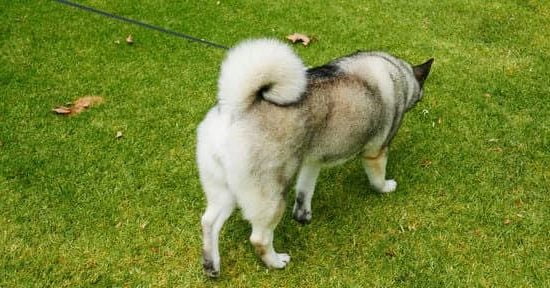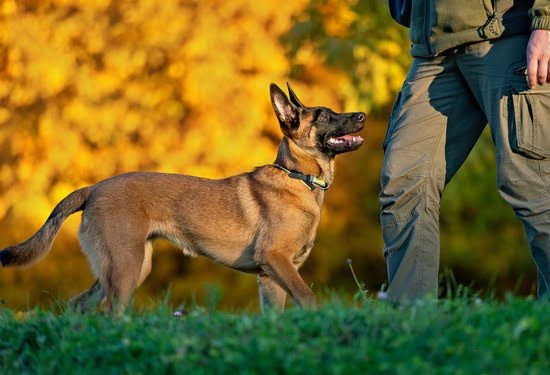Have you ever struggled with training a dog that just doesn’t seem to respond to treats or food rewards? In this article, we will explore how to train a dog not food motivated and discover alternative methods for encouraging good behavior in your furry companion.
Understanding the different types of motivation in dogs is crucial when it comes to successful training. While many dogs are highly food motivated, some may be more interested in play, toys, praise, or affection. Recognizing the signs of a dog not being food motivated is the first step in finding alternative ways to motivate and reward them during training.
Finding your dog’s unique motivators is essential for effective training. Each dog is an individual with their own preferences and interests. By identifying what truly excites and engages your dog, you can tailor your training approach to suit their specific needs.
Using play and toys as training rewards can be a game-changer for dogs that aren’t motivated by food. Incorporating positive reinforcement techniques, verbal praise, and affection into your training sessions can also help create a strong bond between you and your pup while reinforcing desirable behaviors. Additionally, consistency and patience are key factors in successfully training a dog not food motivated, along with celebrating small wins and progress along the way.
Signs of a Dog Not Being Food Motivated
When training a dog, it’s important to recognize and understand the different types of motivation that can drive their behavior. While many dogs are food motivated and will do anything for a tasty treat, some may not be as interested in food rewards. In this section, we will explore the signs that indicate a dog is not food motivated and how to adjust your training techniques accordingly.
- Lack of interest in treats: If your dog shows little to no interest in food rewards during training sessions, it may be a sign that they are not motivated by food.
- Disinterest in meal times: Some dogs may simply have a low food drive and show disinterest in their regular meals, which can translate to their disinterest in food rewards during training.
- Preference for other rewards: Dogs who are not food motivated may show more enthusiasm for other types of rewards such as playtime, toys, or verbal praise.
It’s important to remember that every dog is unique and may have different motivators. Understanding these signs can help you tailor your training approach to better suit your dog’s individual needs. By recognizing these signs early on, you can adjust your training methods to ensure success in motivating your dog during training sessions.
Finding Your Dog’s Unique Motivators
When it comes to training a dog that is not food motivated, it is important to remember that every dog is different and has their own unique motivators. Finding what your dog responds to best can take some trial and error, but it is well worth the effort in the long run.
Understanding Your Dog’s Preferences
To find out what truly motivates your dog, observe their behavior and reactions to different stimuli. Some dogs may be more motivated by play and toys, while others may respond better to verbal praise and affection. Pay attention to what gets your dog excited and engaged during regular activities and use that as a starting point for finding their unique motivators.
Experimenting With Different Rewards
If food doesn’t seem to excite your dog during training sessions, don’t be discouraged. Instead, try using a variety of rewards such as favorite toys, access to an outdoor area or playtime as positive reinforcements. By experimenting with different rewards, you can discover what truly captures your dog’s attention and willingness to learn.
Customizing Training Techniques
Once you have identified what motivates your dog, tailor your training techniques accordingly. For example, if your dog prefers playtime over treats, incorporate short play breaks into training sessions or use interactive toys as rewards for good behavior. Customizing your approach based on your dog’s unique motivators will make the training process more effective and enjoyable for both you and your pet.
Using Play and Toys as Training Rewards
Some dogs may not be motivated by food rewards, but that doesn’t mean they can’t be trained effectively. In fact, many dogs are highly motivated by play and toys, making them excellent alternative rewards for training. One of the key steps in training a dog not food motivated is understanding what activities and toys truly excite your pet.
When using play and toys as training rewards, it’s important to observe which types of playtime activities your dog enjoys the most. Some dogs may love playing fetch with a tennis ball, while others may prefer tugging on a rope toy or engaging in interactive games such as hide and seek. By identifying your dog’s favorite playtime activities, you can use these as powerful rewards during training sessions.
In addition to identifying preferred playtime activities, it’s important to choose the right toys for training. For example, if your dog is motivated by squeaky toys, you can use these as a reward for following commands or exhibiting good behavior.
Interactive toys that dispense treats or require problem-solving skills can also be effective in keeping an un-food motivated dog engaged and focused during training sessions. By incorporating play and toys into your training approach, you can successfully motivate and reinforce desired behaviors in even the most stubborn or uninterested dogs.
Positive Reinforcement Training Techniques
For dog owners who have a dog that is not food motivated, positive reinforcement training techniques can be highly effective in modifying behavior and teaching new commands. Positive reinforcement involves rewarding your dog for desired behaviors rather than punishing them for unwanted behaviors. This creates a positive association with the behavior, making it more likely to be repeated in the future. Examples of positive reinforcement include verbal praise, affection, playtime, and toys.
When using positive reinforcement techniques, it’s important to immediately reward your dog when they exhibit the desired behavior. For example, if you’re teaching your dog to sit on command and they do so successfully, offer immediate verbal praise and affection or engage in playtime with their favorite toy. This reinforces the behavior as something positive and increases the likelihood of them repeating it in the future.
In addition to immediate rewards, consistency is key when using positive reinforcement training techniques. It’s important to consistently reward your dog for the desired behavior every time they do it until it becomes a habit.
This may require patience and persistence from the dog owner, but over time, the dog will learn to associate the behavior with a positive outcome. And remember – every small win should be celebrated to encourage progress in training a dog that is not food motivated.
Incorporating Verbal Praise and Affection Into Training
Understanding the Power of Verbal Praise and Affection
While some dogs may not be food motivated, they can still respond well to verbal praise and affection. Dogs thrive on positive reinforcement, and this can come in the form of your voice and physical affection.
When a dog performs a desired behavior, offering verbal praise such as “good boy” or “well done” can go a long way in reinforcing that behavior. Additionally, physical affection such as petting, belly rubs, or even a favorite toy can also serve as strong motivators for non-food motivated dogs.
Using Consistent Verbal Cues
When incorporating verbal praise into training, it is important to use consistent verbal cues. The tone of your voice and the specific phrases you use should remain constant so that your dog associates these cues with positive reinforcement. For example, if you use the phrase “good job” when your dog follows a command correctly, be sure to consistently use this phrase every time. This helps your dog understand what behaviors are being praised and encouraged.
Patiently Building Trust and Bonding
For dogs that are not food motivated, incorporating verbal praise and affection into training might require more patience in building trust between you and your pet. Spend quality time with your dog outside of training sessions to bond with them. Engage in activities they enjoy such as playing fetch or going for walks. This will strengthen your bond with the dog and make them more responsive to verbal praise during training sessions.
By understanding the power of verbal praise and affection in training non-food motivated dogs, owners can effectively reinforce desired behaviors while strengthening their bond with their pets. Investing time in consistent verbal cues and patient bonding can lead to successful training outcomes for dogs who are not easily motivated by food rewards.
Consistency and Patience in Training a Dog Not Food Motivated
Training a dog that is not food motivated can be a challenging and frustrating task, but with consistency and patience, it can be achieved successfully. It’s important to understand that not all dogs are motivated by food, and finding alternative rewards and motivators is crucial in training them effectively.
Here are some key strategies to consider when training a dog that is not food motivated:
- Understand Your Dog’s Unique Motivation: Every dog is different, so take the time to observe and understand what truly motivates your dog. This could be playtime, toys, verbal praise, or affection.
- Use Play and Toys as Training Rewards: If your dog is more responsive to play and toys, incorporate these into their training routine. Use their favorite toy as a reward for good behavior or completing a command successfully.
- Implement Positive Reinforcement Techniques: Focus on positive reinforcement techniques such as clicker training or marker training. When your dog responds well to a command or behavior, immediately reward them with their preferred motivator.
Consistency and patience are key when it comes to training a dog that is not food motivated. It’s important to remain persistent in using the chosen motivators and rewarding good behavior consistently. Additionally, being patient with your dog’s progress is essential – remember that every small win in training should be celebrated.
It’s also worth noting that seeking professional assistance from a certified dog trainer can provide valuable guidance and support in addressing any challenges you may encounter while training a dog that is not food motivated. Remember, with dedication and perseverance, you can empower yourself as a dog owner to train your pet successfully, even if they are not food motivated.
By implementing these strategies and acknowledging the individuality of each dog, owners can overcome the challenges of training a non-food-motivated canine companion.
Seeking Professional Assistance for Training Challenges
While many dog owners can successfully train their pets without professional assistance, there are times when seeking the help of a professional trainer is the best option. If you find that your dog is not responding to your training efforts, it may be time to consult with a certified dog trainer or behaviorist.
These experts have the knowledge and experience to identify the underlying reasons why your dog may not be food motivated and can provide alternative methods to achieve successful training.
Professional trainers will assess your dog’s behavior, personality, and past experiences to develop a customized training plan that suits your pet’s unique needs. They can also teach you effective techniques for using play, toys, verbal praise, and affection as alternative rewards for training. Additionally, they can guide you on how to incorporate positive reinforcement training techniques into your daily interactions with your dog.
Furthermore, professional trainers can help you navigate through challenging behavioral issues that may be hindering your dog’s motivation in training sessions. Your chosen trainer will offer support and guidance throughout the training process and assist you in celebrating small wins and progress in the journey towards successfully training a dog that is not food motivated. Remember that seeking professional assistance is a proactive step towards understanding and addressing your pet’s individual needs for successful training.
Celebrating Small Wins and Progress in Training
For dog owners with pets who are not food motivated, celebrating small wins and progress in training is especially important. Since traditional treats may not be effective rewards, it’s essential to find other ways to motivate and reinforce positive behavior in your furry friend. Patience and consistency are key as you work with your dog to achieve training goals.
One way to celebrate small wins is by using play and toys as training rewards. Many dogs are motivated by their favorite toys, whether it’s a ball, a tug toy, or a plushie. Incorporating play into training sessions can be highly effective in reinforcing desired behaviors.
For example, if you’re teaching your dog to sit on command, you can reward them with a quick game of fetch as soon as they successfully follow the cue. This not only reinforces the behavior but also makes training a fun and enjoyable experience for your pet.
It’s also crucial to incorporate verbal praise and affection into your training routine. Dogs thrive on positive reinforcement, so offering plenty of praise and petting when they demonstrate good behavior can go a long way.
Remember to keep the tone of your voice upbeat and enthusiastic to show your dog that they’re doing something right. By celebrating each small win with excitement and affection, you’ll create a stronger bond with your pet and make training sessions more rewarding for both of you.
Conclusion
In conclusion, training a dog not food motivated can present its challenges, but with patience, understanding, and the right approach, it is absolutely achievable. By recognizing that different dogs are motivated by various factors beyond just food, owners can unlock the key to their dog’s unique motivators and use them to effectively train and reinforce positive behaviors.
Using play, toys, verbal praise, affection, and positive reinforcement techniques can provide alternative rewards for a dog that is not primarily driven by food.
It is essential for dog owners to remain consistent in their training methods and show patience as they work with their non-food motivated dogs. Celebrating small wins and progress along the way will help keep both the owner and the dog motivated and hopeful. Seeking professional assistance when faced with training challenges can also be incredibly beneficial in finding new strategies to effectively train a dog not typically motivated by food.
Ultimately, empowering dog owners to successfully train dogs not food motivated requires a shift in mindset and an understanding of what drives their individual pet. With the right approach, dedication, and support, every owner can enjoy a well-trained and well-behaved canine companion regardless of their food motivation preferences.
Frequently Asked Questions
How Do You Train a Dog That Isn’t Food Motivated?
Training a dog that isn’t food motivated can be challenging, but it’s not impossible. In this case, finding an alternative motivator is key – it could be a favorite toy, verbal praise, or even physical affection.
The key is to identify what the dog responds to and use that as a reward during training sessions. Positive reinforcement with whatever motivates the dog is essential to encourage desired behavior.
How Do You Train a Dog That Is Not Interested in Food?
When dealing with a dog that is not interested in food, it’s important to explore other forms of motivation for training purposes. Just like with dogs who are not food motivated, finding and using an alternative motivator such as toys, playtime, or praise is crucial.
Patience and understanding of the dog’s individual preferences will go a long way in successfully training a dog not interested in food.
Is It Normal for Dogs to Not Be Food Motivated?
It’s actually quite normal for some dogs to not be food motivated. Just like people, dogs have their own preferences and individual personalities when it comes to what motivates them.
While many dogs are highly food motivated and will do anything for a treat, others may have little interest in food but can be motivated by other means like toys or attention. Understanding and working with each dog’s unique motivations is important for successful training outcomes.

Welcome to the blog! I am a professional dog trainer and have been working with dogs for many years. In this blog, I will be discussing various topics related to dog training, including tips, tricks, and advice. I hope you find this information helpful and informative. Thanks for reading!





